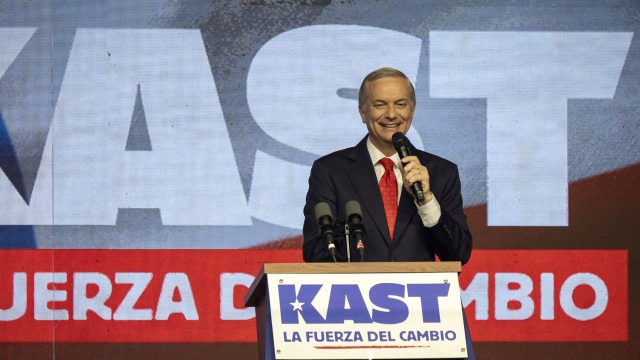
What happened
Chilean voters Sunday set the stage for a presidential runoff election between Jeannette Jara, a progressive former labor minister from President Gabriel Boric’s governing coalition, and far-right former congressman José Antonio Kast. Jara came out ahead in Sunday’s first round, with about 27% of the vote to Kast’s 24%. But Kast was one of four right-wing candidates who collectively won about 70%, making him the frontrunner in next month’s runoff vote.
Who said what
Jara, 51, is a member of the Communist Party, “but many see her as center-left in practice,” the BBC said. Chile’s electorate appears to have shifted to the right since Kast lost to Boric four years ago, with most voters now listing violent crime among their biggest concerns. Kast, 59, has faced criticism “over his late father’s Nazi party membership and his affinity for Augusto Pinochet,” Reuters said, and his victory “would put in place an administration that is further to the right than any other since the Pinochet dictatorship.”
Kast has “borrowed liberally” from President Donald Trump’s playbook, The New York Times said, and “recently set aside many of his most divisive proposals to focus on crime and illegal immigration.” Chile is “one of Latin America’s most prosperous and developed countries,” and “still one of the safest,” The Wall Street Journal said. But many Chileans blame “recent shootouts in broad daylight and violent robberies” on Venezuelan migrants.
What next?
The Dec. 14 runoff vote “will be between a Communist candidate and one from the extreme right who four years ago seemed unreasonable, but now seems reasonable,” economist and former Boric adviser Eduardo Engel told the Times.
The presidential runoff election will be between Jeannette Jara, a progressive from President Gabriel Boric’s governing coalition, and far-right former congressman José Antonio Kast






